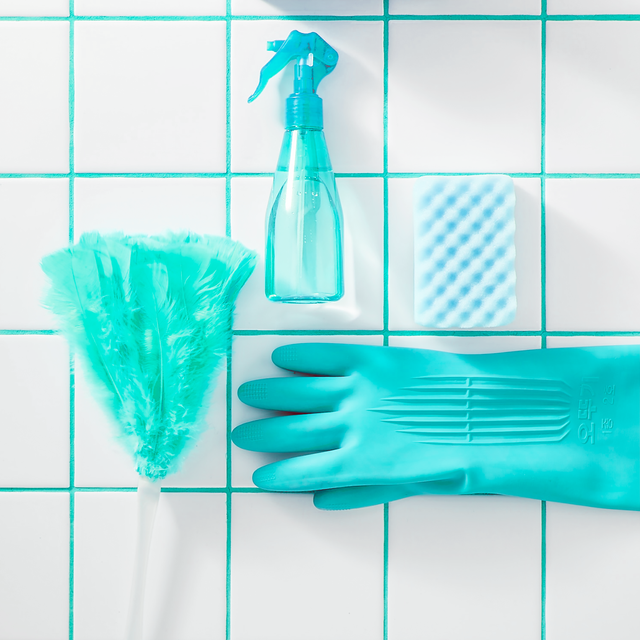
It’s not enough that your home looks and smells clean. To ensure that you and your loved ones can live where everyone can remain happy and healthy, it’s also important sanitize your home on a microscopic level.
There is no way to make your home absolutely free from disease-causing microbes at any given time. However, it is possible to considerably reduce the number of germs present in it. By doing so, everyone in your home can enjoy lowered risk of encountering various health problems due to bacteria, viruses, and fungi. This is especially important during the current pandemic.
Keep on reading if you want to learn how sanitizing and disinfecting your home can be beneficial. Make sure to check out The Centers for Disease Control and Prevention (CDC) has updated information on the status and prevention of various diseases and viruses.
Difference Between Sanitizing your home and Disinfecting
Before we start talking about the perks that comes with sanitizing your home, let us first set one thing straight: sanitizing and disinfecting are two different things. Even though it may seem like they can be used interchangeably, technically speaking, one is unlike the other.
Put simply, sanitizing is all about reducing the number of germs present on a surface. Washing your plates with dishwashing liquid is a form of sanitizing. Rubbing alcohol-based hand sanitizer on your hands is another form of sanitizing. Although it cannot kill all of the germs present, sanitizing can at least help reduce the chance of microbe-related issues from striking.
Disinfecting, on the other hand, involves eliminating all of the germs present. So in other words, none of those microbes will remain after. The process of disinfection often involves the use of chemicals. One common example is spraying a garbage can with disinfectant spray after emptying it. Dunking dining utensils in boiling water is another form of disinfecting.
In a nutshell, both sanitizing and disinfecting will remove harmful germs before they cause all kinds of health problems, some of which can be quite serious and contagious, too. However, they differ in the number of germs that they can get rid of.
Top Reasons for Sanitizing Your Home
Now that you have an idea of the difference between sanitizing and disinfecting, let’s now put our attention to the perks of getting your home sanitized and disinfected, which is what this article is primarily all about.
Sanitizing and disinfecting your home can be done with the use of a variety of products. Most of which are available at supermarkets and hardware stores. They range anywhere from white vinegar, hydrogen peroxide, soap, rubbing alcohol to bleach. Different factors determine which of them you should use. For instance, it is perfectly fine to clean your skin with soap. But it’s a terrible idea to clean it with bleach.
Before using a product for sanitizing and disinfecting purposes, see to it that you carefully read the packaging first. Check out the usage directions and follow them carefully. Don’t forget to take a look at the precautions to avoid unnecessary problems from showing up!
Benefits of sanitizing your home
Without any more ado, let’s take a look at the benefits of sanitizing and disinfecting your home:
Lowered stress levels
- These days, it seems like no one is safe from germs that can wreak havoc on their health and potentially cause death. One example is the coronavirus that is currently keeping everyone all over the planet fearing for their lives. By having your home sanitized and disinfected, it is less likely for the coronavirus and other harmful microbes to thrive in your abode and threaten your health as well as the health of your loved ones.
Reduced health care costs
- Seeking medical help doesn’t come with a cheap price tag especially nowadays. This is why staying on top of health matters a lot, especially for budget-conscious homeowners. As they say, prevention is better than an ounce of cure. Sanitizing and disinfecting your home are preventive measures that are so effective for lowering the risk of a health problem from showing up, ranging from food poisoning to the flu.
Decreased allergy flare-ups
- It’s also a good idea to regularly sanitize and disinfect your home if you have allergies or someone you love has them. That will help deal with common allergens found in the home, such as pet dander, dust mites, mold, and mildew. Regularly cleaning carpets, curtains, drapes, upholsteries, and others where allergens can collect is highly recommended to considerably reduce the risk of flare-ups.
Reduced respiratory issues
- Above, we mentioned that mold and mildew are some examples of allergens found in the home. It’s important to get rid of them even if no one in the family suffers from allergies. That’s because they can cause irritation of the airways. Needless to say, mold and mildew are both bad for the respiratory system. The dangers of them being around become more evident if someone in the family is suffering from asthma or bronchitis — mold and mildew can aggravate a respiratory issue!
Improved home odor
- You don’t have to see mold and mildew with your own eyes to know that they are in your home. Most of the time, smelling them is more than enough to make their presence known. By sanitizing and disinfecting, your home can smell cleaner and fresher. Inviting guests over need not cause embarrassment on your part and annoyance on their part. Especially during spring cleaning, disinfecting and sanitizing are important steps to take to get rid of mold and mildew.
Eliminated excess weight
- There are a couple of reasons why sanitizing and disinfecting your home regularly can help you slim down. First, it can help keep you from stressing over various health concerns — we all know that stress eating can easily lead to weight gain! Second, the act of keeping your home sparkling clean helps burn a lot of excess calories. In other words, it is a great form of exercise that is good not only for your figure but also home.
These are the top benefits to enjoy for sanitizing and disinfecting your home. Although eliminating germs can be done on your own using a variety of household cleaning products, it’s also possible to seek out the help of an in-home caregiver to perform light housekeeping for you.
No matter the approach of your choice, you can rest assured that you and your family are less likely to encounter health problems that are associated with the presence of germs.







